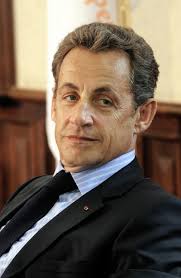
Introduction
Nicolas Sarkozy, who served as the President of France from 2007 to 2012, remains a pivotal figure in modern French politics. His presidency witnessed a blend of economic reforms, controversial policies, and distinctive leadership style that shaped the nation during challenging times. Understanding Sarkozy’s impact is essential for grasping the landscape of contemporary European politics.
Key Policies and Reforms
One of Sarkozy’s most notable policies during his presidency was the economic reform known as the ‘Sarkozy Reform Plan,’ which aimed to stimulate growth and reduce unemployment. Implementing a series of tax cuts and investment incentives, Sarkozy attempted to inject vitality into the French economy, particularly during the global financial crisis that struck in 2008.
In addition to economic measures, Sarkozy’s foreign policy marked a significant shift in France’s global stance. Notably, he called for a more engaged European Union and played a crucial role in military intervention in Libya in 2011, advocating for humanitarian reasons and human rights, which was met with mixed reactions domestically and internationally.
Controversial Leadership Style
Sarkozy’s leadership style was often characterized as assertive and unconventional. He became known for his direct communication approach, which endeared him to some voters while alienating others. His personal life, particularly his high-profile marriage to model Carla Bruni, frequently captured media attention, sometimes overshadowing his political agenda.
Furthermore, Sarkozy faced criticism for his hardline stance on immigration and security. His government introduced measures that cracked down on illegal immigration and emphasized national security, igniting debates about integration and multiculturalism in France.
Legacy and Impact
Despite his term ending over a decade ago, Sarkozy’s political legacy continues to influence discussions around governance in France. Supporters highlight his efforts to modernize the French economy and establish a proactive foreign policy, while detractors point to his divisive policies and controversial media presence.
As France continues to grapple with various challenges, including economic recovery post-COVID-19 and rising populism, Sarkozy’s approach to leadership and policy remains a reference point for current and future politicians.
Conclusion
In summary, Nicolas Sarkozy’s presidency was marked by significant reforms, bold foreign policies, and a distinctive leadership style that had lasting implications for France and beyond. As political dynamics evolve, understanding Sarkozy’s contributions provides valuable insights into the complexities and challenges of contemporary governance in France.



